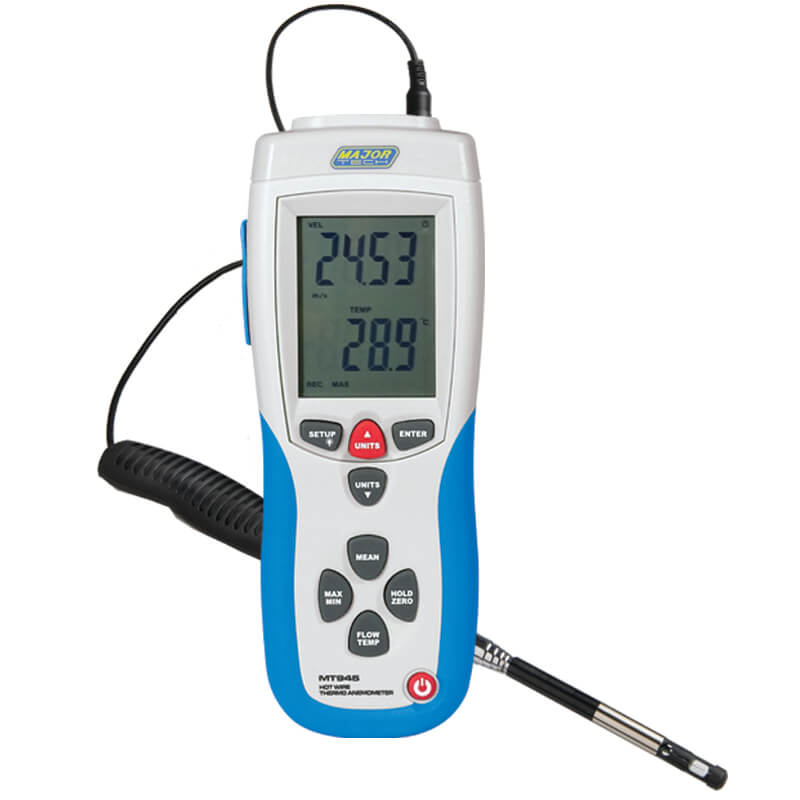The Function of an Anemometer in Improving Safety for Outdoor Activities
All You Required to Know Regarding Anemometers: How They Function, Why They Matter, and Where to Use Them
Anemometers, though frequently forgotten in the realm of scientific tools, play a crucial role in different fields, providing valuable understandings right into wind speed and air movement patterns. Recognizing the auto mechanics behind these tools is essential for any person looking for to harness the power of this information. From meteorologists tracking weather patterns to designers designing frameworks with wind lots in mind, the applications of anemometers are significant and diverse. As we look into the intricacies of anemometer modern technology, we will discover the internal workings of these gadgets, their significance, and the essential factors to consider when choosing the best anemometer for certain applications.

Anemometer Essentials
A vital tool made use of to measure wind rate and instructions, the anemometer plays an important function in weather forecasting and numerous industries. An anemometer normally consists of 3 or four mugs that turn in the wind, a vane that points right into the wind, and sensors to track the rotations or activities. By calculating the rotations or motions over a details time duration, the anemometer can establish wind speed. The vane helps establish wind instructions by pointing into the wind, providing valuable data for climate projecting, aeronautics, maritime procedures, environmental surveillance, and wind energy applications.
There are various types of anemometers offered, including cup anemometers, vane anemometers, hot-wire anemometers, and sonic anemometers, each with its one-of-a-kind features and applications. Cup anemometers are typically used for basic wind rate measurements, while vane anemometers are chosen for directional measurements. Hot-wire anemometers are appropriate for reduced airspeeds, and sonic anemometers are excellent for high-precision dimensions in study and industrial settings. Understanding the fundamentals of anemometers is necessary for precise wind information collection and analysis throughout various industries.
Concepts of Anemometer Operation
Building on the fundamental understanding of anemometer basics, the concepts of anemometer operation elucidate the auto mechanics behind wind rate and instructions measurements. Cup anemometers, for instance, have three or even more cups that capture the wind, creating them to rotate quicker as the wind rate boosts. Hot-wire anemometers rely on a heated cord that cools down as wind passes over it, with the price of cooling down figuring out the wind speed.
Relevance of Anemometers
Anemometers play an important role in determining wind speed and instructions, offering essential data for weather condition forecasting, climate studies, environmental monitoring, and aeronautics procedures. Meteorologists rely on anemometers to collect exact wind data, assisting them comprehend weather patterns, anticipate tornados, and problem timely warnings to the public. Wind ranch drivers utilize anemometers to examine wind conditions and optimize power manufacturing from wind generators.
Applications Across Various Industries
In the renewable energy sector, anemometers play an essential function in examining wind problems for wind ranch placements, making certain optimum power manufacturing. Industries like building and construction and mining utilize anemometers to keep an eye on wind rates, vital for safety and security procedures, specifically when functioning at elevations or in open-pit mines where strong winds can posture hazards. In agriculture, anemometers aid farmers in managing plant spraying by offering real-time data on wind speed to stay clear of drift.

Choosing the Right Anemometer for Your Requirements
For basic functions, a cup anemometer is appropriate for measuring wind rate, while a vane anemometer gives wind instructions data. Hot-wire anemometers are ideal for low airspeed measurements, and ultrasonic anemometers use high precision and toughness.

Final Thought
In verdict, anemometers play an important function in measuring wind rate and instructions across different markets. It is crucial to take into consideration the importance of anemometers in order to make informed choices when picking the most appropriate device for measuring wind conditions.
There are different kinds of you could try here anemometers readily available, consisting of cup anemometers, vane anemometers, hot-wire anemometers, and sonic anemometers, each with its one-of-a-kind features and applications. Cup anemometers are frequently made use of for standard wind rate measurements, while vane anemometers are chosen for directional measurements. Hot-wire anemometers are appropriate for reduced airspeeds, and sonic anemometers are excellent for high-precision dimensions in visit this web-site research and industrial settings.Building on the foundational understanding of anemometer basics, the principles of anemometer operation elucidate the mechanics behind wind speed and direction measurements. For general purposes, a cup anemometer is suitable for measuring wind speed, while a vane anemometer supplies wind instructions information.